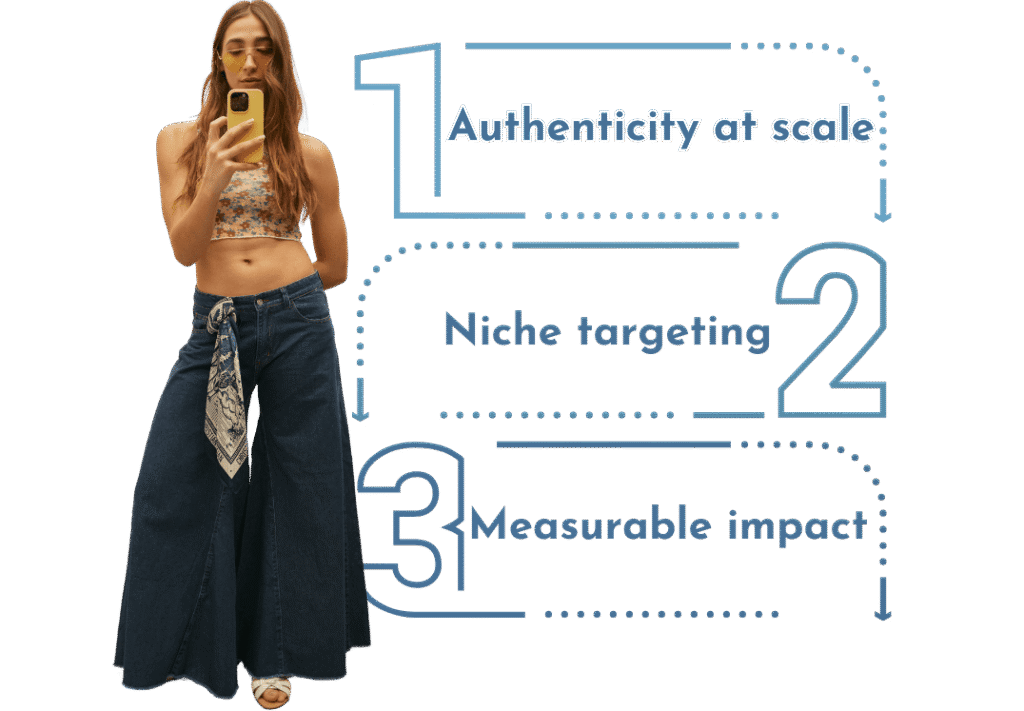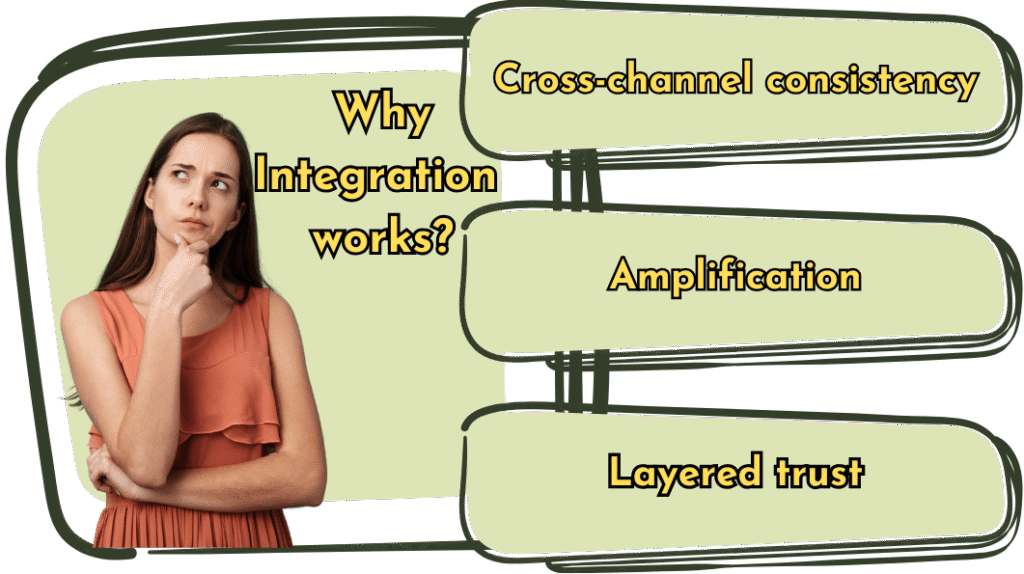In the evolving digital marketing world, brands have a constant question: PR vs influencer marketing – which delivers better results? Both strategies have the power to increase visibility and credibility, but they differ in approach, cost, and outcome. Whether you’re launching a new product, entering a new market, or trying to improve your brand perception, choosing the right method can significantly impact your brand’s growth.
This blog breaks down influencer marketing vs public relations, compares performance metrics, and helps you figure out how to choose the best strategy – or when combining both might be the smartest move.
Understanding the Core Differences Between PR and Influencer Marketing
At their core, public relations and influencer marketing are about communication. But the channels, control, and consumer perceptions differ vastly.
Earned Media vs Paid Media
One of the biggest differences between the two is the type of media used.
- PR is primarily about earned media. You pitch stories to journalists, secure mentions in blogs or news articles, and rely on organic media coverage. The value? It feels unbiased and trustworthy.
- Influencer marketing, on the other hand, falls under paid media. You’re paying for visibility – whether in cash, product, or both – and you have more control over messaging.
Comparison Table: Earned vs Paid Media
| Aspect | Public Relations (PR) | Influencer Marketing |
| Type of Media | Earned media | Paid media |
| Control Over Message | Low | High |
| Perceived Trust | High | Moderate (depends on influencer) |
| Time to Execute | Slower | Fast |
| Longevity | Long-term brand equity | Short-term campaigns |
Evaluating the Benefits of Public Relations for Brand Reputation
Public relations strategy is the long game. It’s about building trust, authority, and presence over time – and it’s especially effective for businesses aiming to influence public perception and establish industry leadership.
Why PR Works for Brand Credibility

- Credibility from third parties: When a news outlet writes about your brand, consumers view it as unbiased validation.
- Expert positioning: PR helps place executives in interviews, panels, and bylined articles to build thought leadership.
- Crisis navigation: A strong PR campaign is your best defense during reputation-threatening situations.
Benefits of PR for Brand Reputation
- Builds brand trust over time
- Influences media narratives
- Offers long-term visibility
- Boosts SEO with authoritative backlinks
Example: A well-crafted public relations strategy helped Patagonia reinforce its sustainability stance by consistently appearing in environmental news coverage—without paying for ads.
Exploring the Advantages of Influencer Marketing for Brand Engagement
If PR is a marathon, influencer marketing is a sprint – perfect for high-impact launches, targeting niche audiences, and driving real-time engagement.
Why Influencer Marketing Drives Engagement

- Authenticity at scale: Influencers speak their audience’s language. They tell stories that feel personal and relatable.
- Niche targeting: Whether you’re after fitness buffs, gamers, or DIY enthusiasts, there’s an influencer for every niche.
- Measurable impact: You can track clicks, conversions, and customer behavior in real time.
Influencer Marketing Strategy Best Practices
- Vet influencers for authenticity, engagement, and alignment with your values.
- Use affiliate links, UTM codes, or discount codes to track ROI.
- Create campaigns that feel organic – not overly scripted.
Influencer Marketing for Small Businesses
For startups or local brands with limited budgets, micro-influencers often yield better results than big names. Their audiences tend to be more engaged and trust their recommendations more.
PR vs Influencer Marketing: ROI and Performance Metrics Compared
When it comes to performance, the question isn’t just “Which works better?” — it’s what are you trying to measure?
Influencer Marketing ROI vs PR Campaign Effectiveness
| Metric | PR Strategy | Influencer Marketing Strategy |
| Trust & Credibility | High (media validation) | Medium (audience relationship) |
| Brand Awareness | High over time | High immediately |
| Lead Generation | Moderate (indirect) | High (trackable, direct CTAs) |
| Cost | Typically lower | Varies greatly |
| ROI Measurement | Difficult to quantify | Easier with UTM links & codes |
Key Insight:
- Influencer marketing ROI is easier to track for sales and website visits.
- PR campaign effectiveness shines in long-term brand building and reputation gains that are harder to measure, but deeply impactful.
Case Studies: Successful Brand Campaigns Utilizing PR and Influencer Marketing
Sometimes, the best way to compare strategies is to see them in action.
Case Study 1: Using PR for Brand Authority
Brand: Airbnb
Strategy: Launched a PR campaign to promote community-based travel experiences.
Results: Earned international coverage in Forbes, Time, and CNN. Boosted brand authority and trust during a period of industry skepticism.
Case Study 2: Influencer Marketing for Fast Sales
Brand: Glossier
Strategy: Partnered with beauty influencers and everyday users to showcase real product results.
Results: Viral content, 3x website traffic, and sold out products within weeks. Direct engagement turned followers into buyers.
Case Study 3: Combining PR and Influencer Marketing
Brand: Dove
Strategy: Leveraged influencer storytelling with PR-backed research on self-esteem in young women.
Results: National media coverage and viral social media impact. Showcased the strength of combining both approaches.
Integrating PR and Influencer Marketing for a Comprehensive Strategy
Why choose one when you can blend both? An integrated marketing communications strategy brings together PR’s credibility and influencer marketing’s reach.
Why Integration Works

- Cross-channel consistency: Ensure your brand story is the same across news sites and social feeds.
- Amplification: Influencers can extend the reach of PR wins (e.g., re-sharing media coverage).
- Layered trust: Third-party press + real voices from influencers = brand trust + relatability.
How to Combine the Two
- Launch a PR campaign, then let influencers share and react to the coverage.
- Use influencer videos to support major PR events or launches.
- Coordinate messaging calendars so both teams (PR and influencer) are in sync.
Conclusion: Choosing the Right Strategy for Your Brand’s Goals
The best strategy isn’t always “either-or.” It depends on your budget, goals, audience, and brand maturity.
- Choose PR if: You’re focused on reputation, long-term awareness, or launching thought leadership.
- Choose influencer marketing if: You want fast engagement, conversions, or to tap into niche markets.
- Combine both if: You’re scaling and want credibility and momentum.
Each approach offers unique advantages. The winning move is to use them strategically — not just as tactics, but as growth drivers tailored to your brand’s vision.
Frequently Asked Questions (People Also Ask)
What is the difference between PR and influencer marketing?
PR is earned media that builds credibility through press coverage and media mentions. Influencer marketing is paid media that leverages the reach and trust of influencers to promote your brand directly.
Which is more effective for brand awareness: PR or influencer marketing?
Both can be effective. PR provides long-term brand trust, while influencer marketing creates immediate awareness and engagement. The ideal choice depends on your goals and timeline.
Can PR and influencer marketing be used together?
Absolutely. An integrated approach allows brands to amplify earned media coverage through influencers, maximizing reach and impact while reinforcing credibility.
How do PR and influencer marketing impact ROI?
Influencer campaigns tend to have more trackable ROI in terms of conversions and clicks. PR’s ROI is more about long-term brand value, reputation, and organic visibility.
What are the pros and cons of PR vs influencer marketing?
PR builds trust but can take time and offers less control over the message. Influencer marketing is faster and highly targeted, but can appear less authentic if overdone. A hybrid approach often delivers the best of both worlds.

